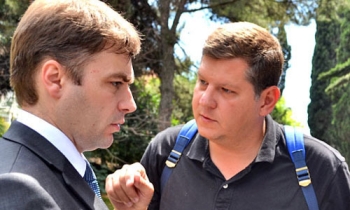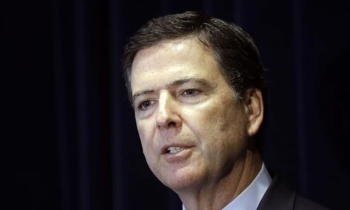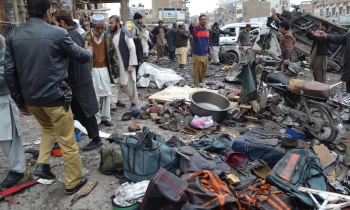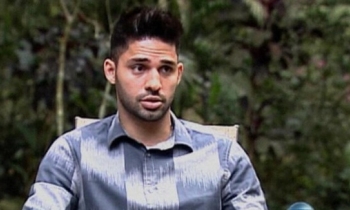The press freedom situation in Sri Lanka has noticeably deteriorated over the past year, marked by a continuation in murders, attacks, abductions, intimidation and harassment of the media, says an international press freedom mission to Sri Lanka.
Media in war-affected areas in the north and east continue to be the most insecure, facing threats and restrictions from all parties, says the mission, which visited Sri Lanka last month. Journalist P Devakumar was stabbed to death in May in Jaffna, which has been under military control for more than a decade and has been a battle zone between Tamil Tiger rebels and the government.
In recent months, the mission found, journalists and media institutions seeking to report independently on the ongoing conflict have been attacked and intimidated "in a seeming effort to limit public knowledge about the conduct of the war." They have also been explicitly pressured to reveal their sources.
Meanwhile, government officials and elected representatives—including from the Ministry of Defence—have been working to discredit independent journalists, verbally and physically, and have shown little interest in protecting them. The government has also resorted to new tactics to silence dissent.
JS Tissainayagam, B Jasiharan and V Vallarmathy have been detained since March 2008 and charged under the Prevention of Terrorism Act. The mission "is worried about the dangerous precedent this sets for all media nationally and internationally."
Last month, the government brought in new media rules that provide for a number of reasons why broadcasting licences can be cancelled—including seven different grounds related to broadcast content. Broadcast channels will now have to apply annually for licence renewal. And a popular broadcast channel has been told that it must submit transcripts of news broadcasts to be carried every week as of October 28.
In the recent World Press Freedom Index published by Reporters sans Frontières (RSF), Sri Lanka has fallen to the lowest press freedom rating of any democratic country worldwide.
The mission applauded the solidarity and resolve shown by five journalists' organisations in Sri Lanka—the Free Media Movement, Sri Lankan Working Journalists' Association, Federation of Media Employees' Trade Unions, Sri Lankan Tamil Media Alliance and Sri Lankan Muslim Media Forum.
This was the third visit of the International Press Freedom and Freedom of Expression Mission to Sri Lanka. The mission, comprised of 12 international organisations, undertook fact-finding and advocacy missions to Sri Lanka in October 2006 and June 2007. The October 25-29 delegation comprised IFEX members the International Federation of Journalists (IFJ), the International Press Institute (IPI) and RSF, as well as International Media Support (IMS) and the International News Safety Institute (INSI).










